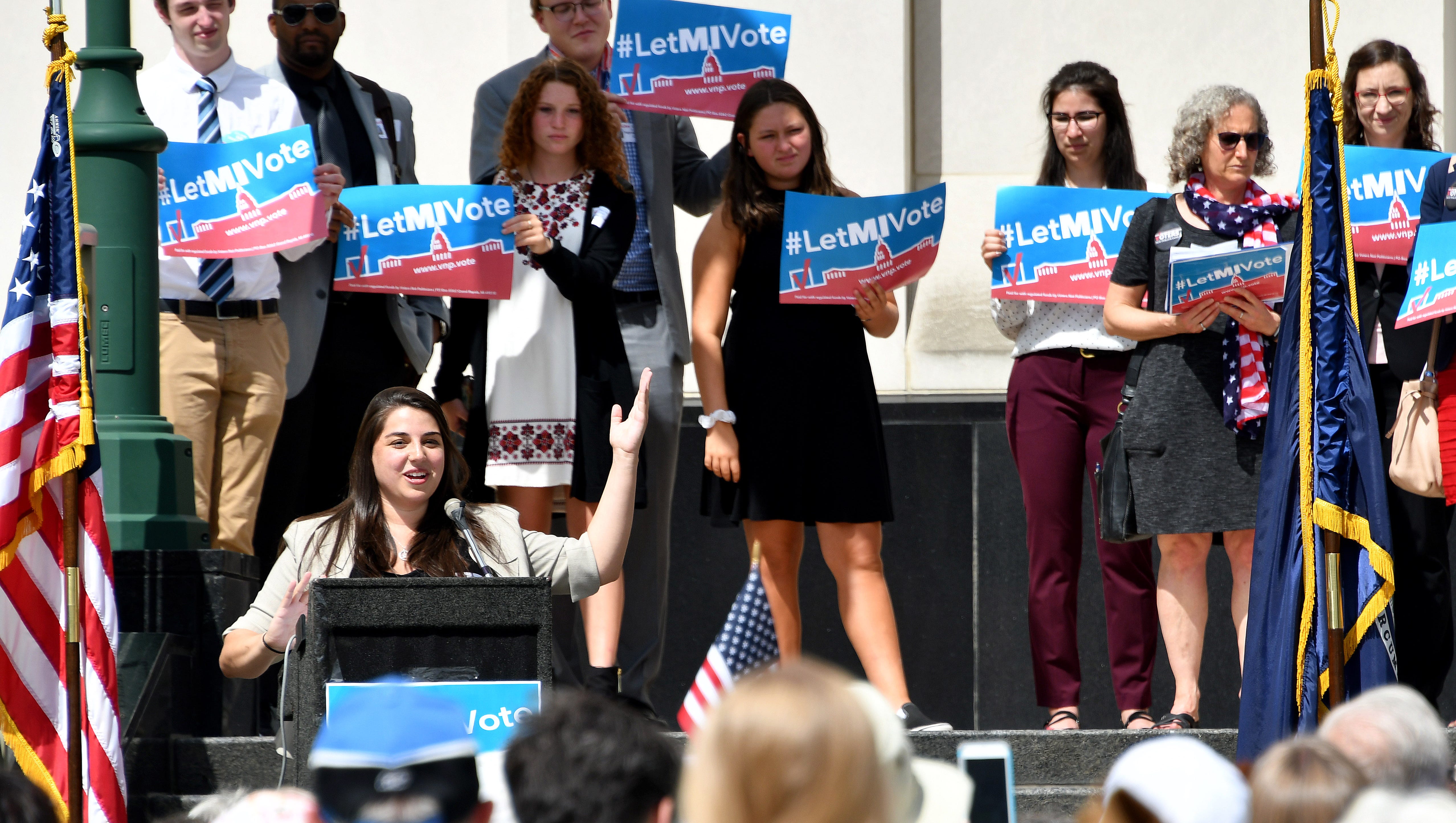Redistricting group argues GOP rules plan 'unconstitutional'
 Jonathan Oosting
Jonathan Oosting
Lansing — Michigan legislators cannot write rules for an independent restricting commission without violating the constitutional amendment approved by voters last month, organizers of the ballot initiative argued Tuesday.
A Republican proposal advanced by the Senate Government Operations Committee is unconstitutional and a “direct attack on the will of the voters,” said Nancy Wang, president of the Voters Not Politicians committee.
The more than 2.5 million voters who approved the anti-gerrymandering measure “took the extraordinary step of amending our state constitution specifically to take politicians out of the redistricting process — period,” Wang told lawmakers.
Sponsoring Sen. Phil Pavlov, R-St. Clair Township, said his legislation does not revise the constitutional amendment, which would require another vote of the people. Instead, it would create a new law to build “safeguards to ensure the integrity of the independent redistricting commission,” which must include four Democrats, four Republicans and five independent members.
The legislation would define how the Michigan secretary of state should determine the partisan affiliation of applicants to the bipartisan commission, which is empowered, instead of lawmakers, to draw new political boundaries after the 2020 Census.
The bill proposes a fine of $500 for lying about partisan affiliation and would prohibit the commission from using contractors with ties to either major political party.
The redistricting commission is designed to take partisan politics out of the redistricting process, Pavlov said, and the proposal would “build in additional caution” to “remove any kind of doubt that the voters have confidence in what they voted for.”
The measure is heading to the full Senate after 3-2 approval in the government operations committee chaired by Senate Majority Leader Arlan Meekhof, R-West Olive. Democrats opposed the legislation, and the hearing was flooded by critics.
Under Pavlov’s bill, an individual who contributed to a political party in some way over the past six years would be presumed to be affiliated with that party. Applicants would have to state their political affiliation under oath, and independents would have to vow they are not a member of any political party.
A person who was affiliated with a political party would be prohibited from providing services, including legal and accounting services, to the commission.
There is a concern that the contractor language could prohibit the commission from hiring consultants with important expertise, Wang said. “But there’s the bigger concern of who gets to decide, and the voters said the commission gets to decide (who to hire).”
The constitutional amendment includes specific language stating that it is “self-executing,” a provision that supporters say expressly prohibits the Legislature from adopting related rules.
But the legislation does not “override” the constitutional amendment, Pavlov argued, acknowledging that 61 percent of voters approved creation of the independent redistricting commission.
“It’s enshrined in our constitution,” Pavlov said, telling colleagues that his bill is an attempt to create rules that “match up with the intent of fairness that was stressed” by commission proponents during the campaign.
Asked if Voters Not Politicians is prepared to sue if the Legislature approves the rules, spokeswoman Elizabeth Battiste said the committee "will take all steps necessary to protect the constitutional amendment supported by an overwhelming majority of Michigan voters."
Tony Daunt of the Michigan Freedom Fund, a conservative group that fought the ballot proposal, questioned claims the legislation is unconstitutional and encouraged the Legislature to continue advancing the proposal.
The rules would discourage residents from lying about their partisan affiliation in order to gain a spot on the commission, he said.
“I think what the Legislature is doing here is helping to clarify and create accountability for people in terms of what political affiliation they claim to have.”
joosting@detroitnews.com